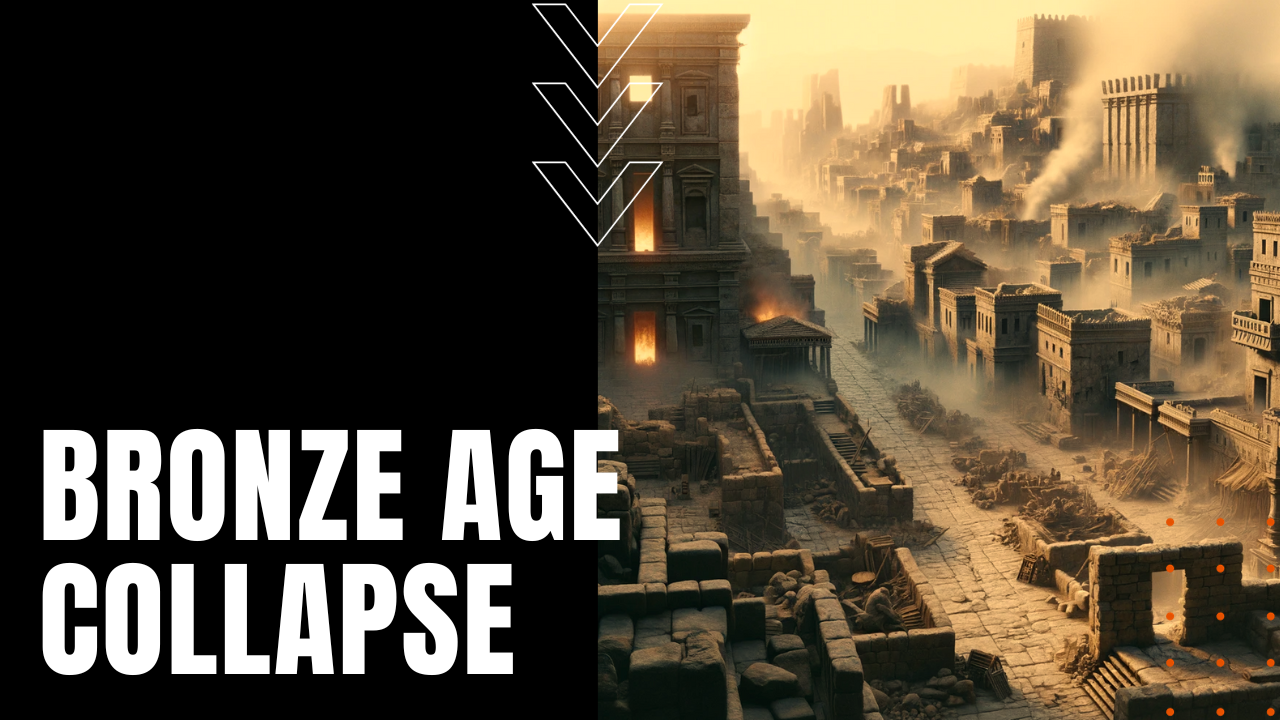Collapse of the Bronze Age

With some striking parallels to our world today, more than 3,200 years ago, Bronze Age civilizations such as the Babylonians, Greeks, Minoans, Egyptians and more, relied heavily on a global interdependence of trade, both in valuable metals and finished products. A stunning example of the interconnectedness of Bronze Age civilizations comes from the archeological gold mine found aboard the shipwreck Uluburun off the coast of present-day Turkey, where divers recovered ivory trinkets, gold and agate jewelry, ostrich eggshells and elephant tusks, along with copper from Cyprus, tin from Afghanistan, silver and gold from Egypt and Greece.
A Sudden End
In a matter of decades, however, that all ended after 1177 BC, when a perfect storm of stressors led to a devastating period of societal regression and collapse. According to Eric H. Cline, professor of classical and ancient Near Eastern studies and anthropology at George Washington University, the traditional explanation for the sudden collapse of the Bronze Age was the arrival of marauding invaders collectively known as the “Sea Peoples,” who burned cities and overwhelmed defending armies. According to archaeological ruins, while the Egyptians were able to ward off the Sea Peoples, other civilizations were not so fortunate, including the Hittite and Canaanite Empires.
Multiple Natural Disasters
Other contributing factors to the collapse of Bronze Age civilizations include a long period of what scholars have called a “megadrought,” which brought about widespread famine and disease, along with a rapid-fire series of devastating earthquakes known as an “earthquake storm.” While scholars have pointed to the Sea Peoples as an important cause behind the collapse of Bronze Age civilizations, Cline, in his compelling book 1177 B.C.: The Year Civilization Collapsed,” suggests that the Sea Peoples were closer to a symptom than its primary cause, when bands marauding climate refugees invaded and pillaged in their search for ever-dwindling resources.
Ultimate Collapse
After trading systems had collapsed like dominoes, large-scale monument building came to a precipitous halt, along with an important writing system called Linear B, used by Greek and Mycenaean scribes as a form of economic accounting. Soon after the collapse, ancient civilizations began smelting weapons and ploughs from iron instead of bronze, a metal far superior to bronze, ushering in an important leap forward in the history of early man.
